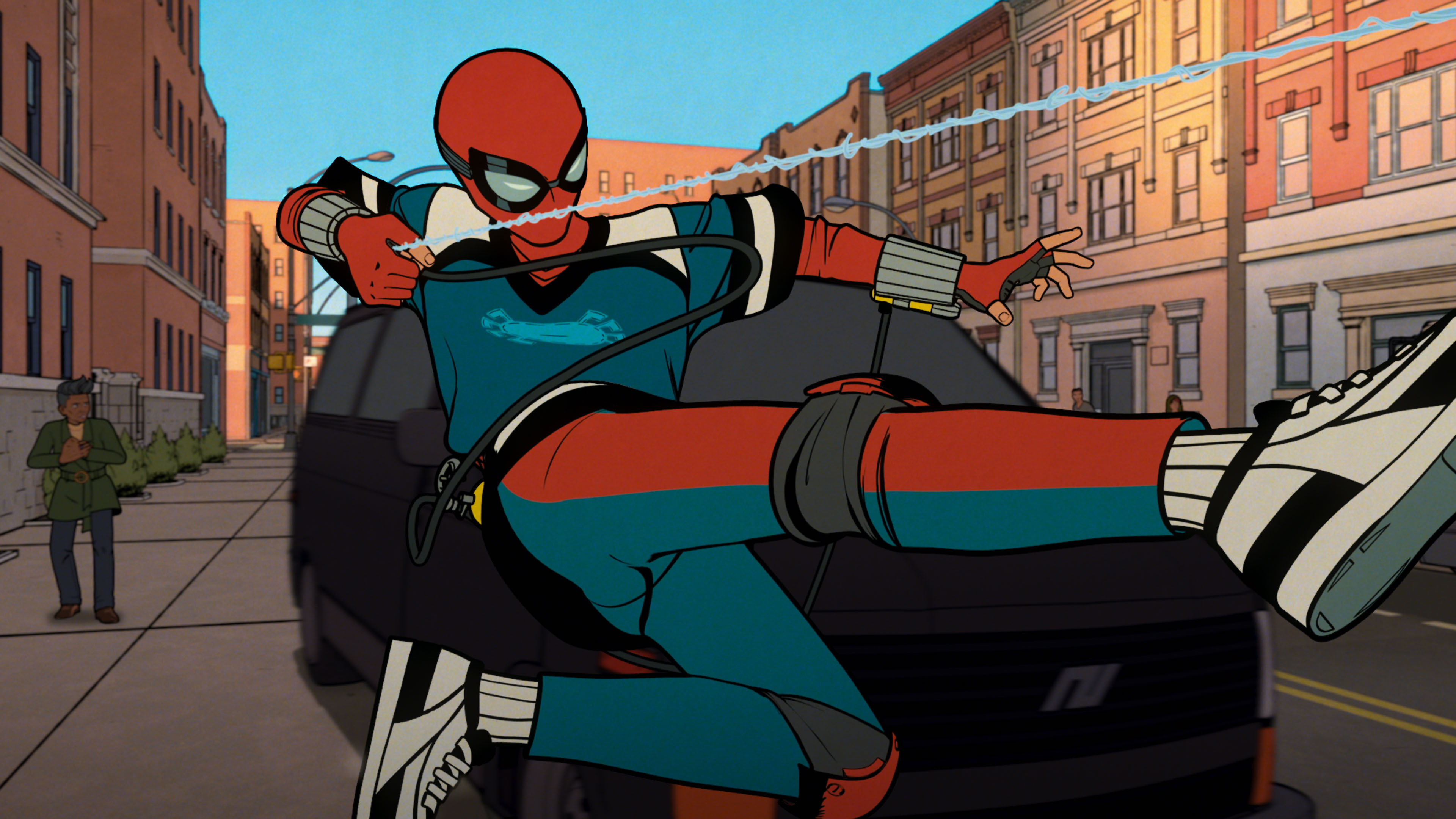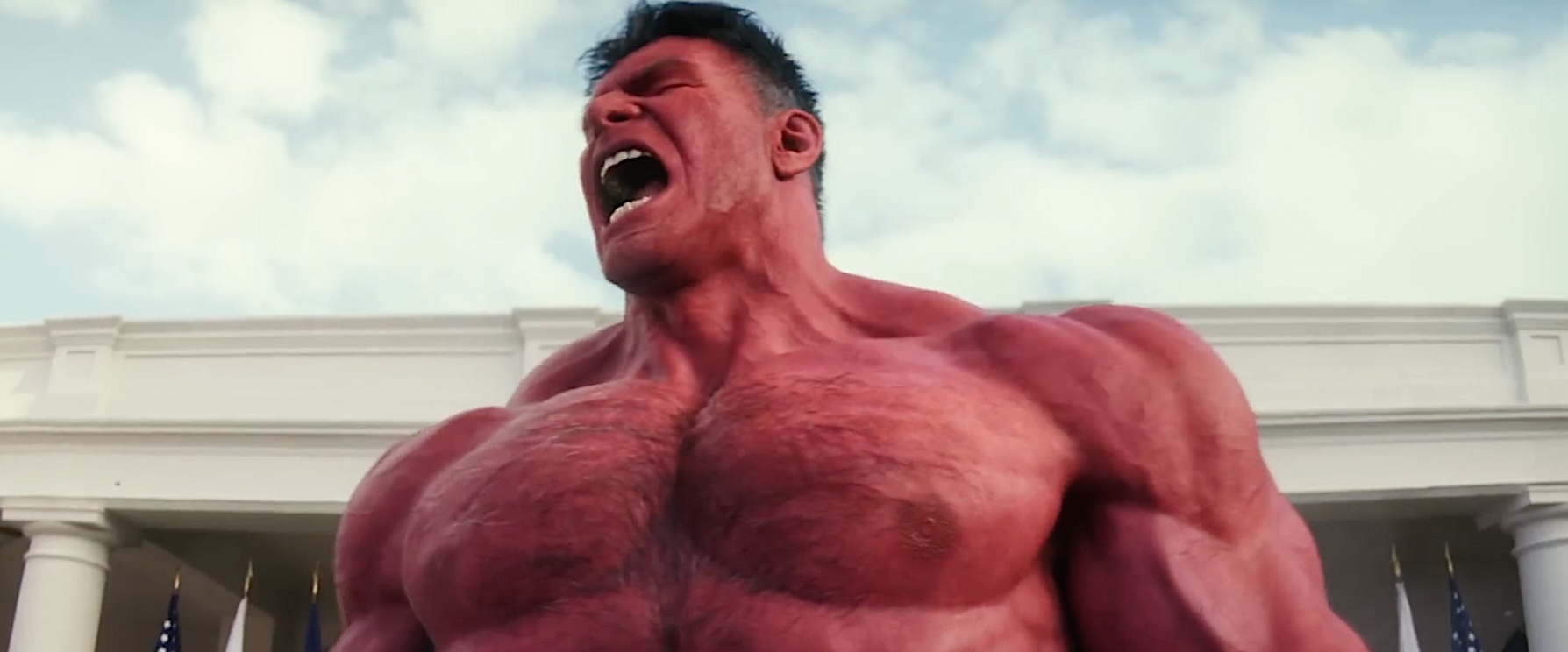Monologues are Mike Flanagan’s specialty. From his earliest movies, he’s loved to let characters wax poetic about their motivations, the supernatural, or honestly just about anything. Of course, when he turned his focus to television and started making miniseries, he got even more room to let his penchant for speeches run wild, and for the most part he’s made the best of it, especially in Midnight Mass and The Haunting of Hill House. But his latest series for Netflix, The Fall of the House of Usher, contains his worst-ever monologue (and perhaps one of the worst monologues ever committed to paper) and shows that he, and the series, aren’t great at writing about wealth.
The monologue in question, which happens in the middle of the show’s third episode, belongs to the story’s de facto narrator, Roderick Usher (Bruce Greenwood). About halfway through confessing all of his many crimes and the secrets behind his children’s deaths to Auguste Dupin (Carl Lumbly), Roderick launches into a long and winding description of everything wrong with the idiom “when life gives you lemons, make lemonade.”
Roderick answers at length:
When life hands you lemons, make lemonade? No. First you roll out a multi-media campaign to convince people lemons are incredibly scarce, which only works if you stockpile lemons, control the supply, then a media blitz. Lemon is the only way to say “I love you,” the must-have accessory for engagements or anniversaries. Roses are out, lemons are in. Billboards that say she won’t have sex with you unless you got lemons. You cut De Beers in on it. Limited edition lemon bracelets, yellow diamonds called lemon drops. You get Apple to call their new operating system OS-Lemón. A little accent over the “o.” You charge 40% more for organic lemons, 50% more for conflict-free lemons. You pack the Capitol with lemon lobbyists, you get a Kardashian to suck a lemon wedge in a leaked sex tape. Timotheé Chalamet wears lemon shoes at Cannes. Get a hashtag campaign. Something isn’t “cool” or “tight” or “awesome,” no, it’s “lemon.” “Did you see that movie? Did you see that concert? It was effing lemon.” Billie Eilish, “OMG, hashtag… lemon.” You get Dr. Oz to recommend four lemons a day and a lemon suppository supplement to get rid of toxins ‘cause there’s nothing scarier than toxins. Then you patent the seeds. You write a line of genetic code that makes the lemons look just a little more like tits… and you get a gene patent for the tit-lemon DNA sequence, you cross-pollinate… you get those seeds circulating in the wild, and then you sue the farmer for copyright infringement when that genetic code shows up on their land. Sit back, rake in the millions, and then, when you’re done, and you’ve sold your lem-pire for a few billion dollars, then, and only then, you make some fucking lemonade.
:no_upscale()/cdn.vox-cdn.com/uploads/chorus_asset/file/24940991/TFHU_101_Unit_05434RC.jpg)
There are so many problems with this monologue that it’s difficult to know where to start, but before we get to them, it’s important to note how the show frames it. The monologue plays entirely on Bruce Greenwood’s scowling face with a slow zoom and a thunderstorm behind him. There are no pauses for laughter or smirks, it’s just pure “thundering” bravado and confidence. And when we cut back to a rapt Auggie, he’s shocked by the power of Roderick’s insight into how capitalism really works.
It is truly, deeply embarrassing to watch. It could have been just a bad, extended joke about the overconfidence of the exorbitantly rich. But because the show treats it with utmost seriousness, seemingly giving Roderick credit as a cunning business genius, we’re forced to reckon with its actual text and what it means for the characters, and the show’s version of wealth and capitalism.
Let’s start with Roderick’s comparison to roses, which is way off. Roses can’t really be considered a fad, because they have been a symbol of love and affection dating back to at least ancient Greece. His comparison to diamonds is actually pretty good: a product whose primary value is as an over-marketed status symbol where the production and artificial scarcity is strictly controlled. Unfortunately, that’s the last time he’ll make much of a coherent point, particularly as the tone grows more insistent amid a barrage of “real world” references.
:no_upscale()/cdn.vox-cdn.com/uploads/chorus_asset/file/24915636/TFHU_102_Unit_01074RC.jpg)
Those more modern nods don’t make any sense: On top of it being generally silly to suggest product placement in a sex tape as a prime influencer of culture, the bit about a leaked Kardashian sex step is a rather gross assertion for the show to make about Kim Kardashian, and generally about female celebrities who have private content leaked against their wishes. If we’re being charitable, we could say this is just something Roderick thinks because he’s an asshole; but again, we’re supposed to believe he knows business and monopolies extremely well. It’s also just a reference that feels more than a decade out of date, not unlike him saying Billie Eilish should say “hashtag Lemon” as part of the promotion. That’s a suggestion so out of step with the singer’s brand and online presence that it would likely have the reverse effect Roderick is suggesting (not to mention the ever decreasing relevance of hashtags or the website that helped popularize them). And then he’s on to Dr. Oz, for some reason, whose reputation as a health guru kingmaker fell off long before his Senate campaign drew even more negative attention to his work.
Every single real-world reference here feels like a first draft that was supposed to get fact-checked later, but got forgotten instead. It’s ridiculously out of step, both with the real-world promotion these celebrities often do, but also with the way endorsement culture works in 2023. Sponsored content has been the accepted standard for influencers and celebrities for more than a decade, and a paid endorsement is par for the course. You don’t need devious manipulation: The culture’s mostly onboard with their favorites selling them stuff already. And if you did use devious manipulation, it would look nothing like the examples Roderick cited.
And again — worst of all — it’s just bad writing. It’s comical hyperbole that makes the show’s main character, who its whole premise rests on us knowing as a smart, calculating, and cruel person, sound totally out of touch. Auggie allowing any of this to pass without so much as a chuckle unfortunately drags him down, too.
Taken in the context of the entire show, this whole business with the lemons completely undercuts much of what Flanagan is trying to say about wealth or the greed of corporations. Making a healthcare CEO who got rich on opioids into a caricature of evil because of the way he’d sell lemons is easy, but it also obscures the insidious and more straightforward ways corporations actually do exploit markets, or even the way Roderick himself knowingly pushed an addictive painkiller in order to sell more of it.
:no_upscale()/cdn.vox-cdn.com/uploads/chorus_asset/file/24992113/TFHU_105_Unit_03397RC.jpg)
This muddled understanding infects everything about the way Usher tells the story of Roderick and his children. Their wealth and power is merely an indicator of status — the Ushers have the vague trappings of wealth, but the show doesn’t seem bothered with examining how being wealthy changes them, beyond the toys and spaces they have access to. Their rich-kid degeneracy is primarily expressed through their “hip” jobs or even (alarmingly) their sexualities, seemingly letting queerness stand in for decadence for almost all of Roderick’s children. But the show never manages the casual and silly hedonism of Succession’s characters dining on endangered birds. Nothing in the show is even half as funny or evocative as Arrested Development’s Lucille Bluth wildly miss-guessing the price of a banana.
Some of this flippant and boring flattening could be excusable if The Fall of the House of Usher was the show it often flirts with being: an arch and deliciously dark comedy about a rich family of monsters getting their just desserts at the hands of a supernatural entity. But instead, the show insists on Saying Something and being Important. The finale’s biggest set piece has Verna’s (Carla Gugino) god-like force lecturing Roderick on all the evil he’s brought into the world, for goodness sake. A keener sense of humor would have carried this show much further in its vision of what the wealthy monsters of the world look like — even if its lemon joke still wouldn’t have landed.








